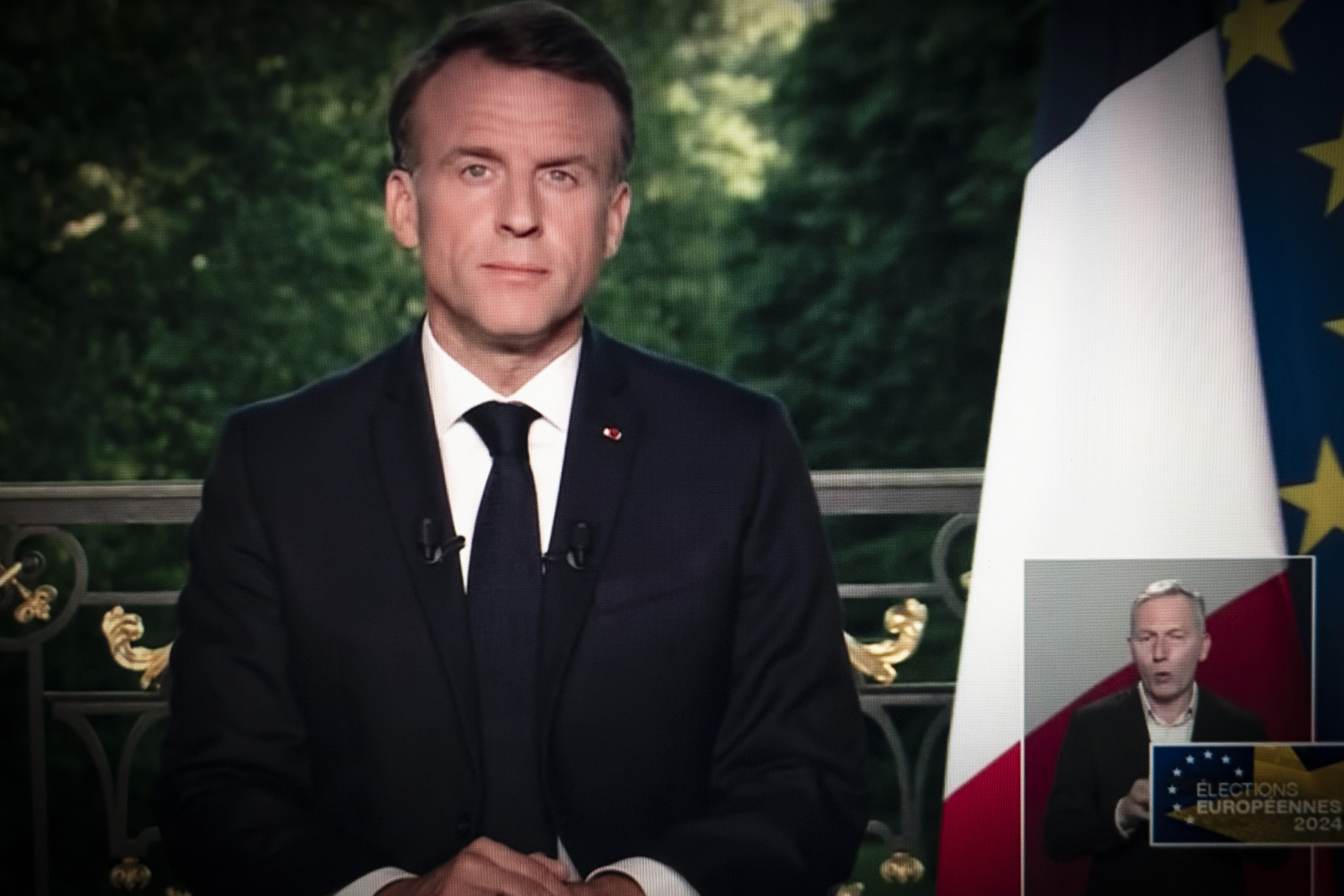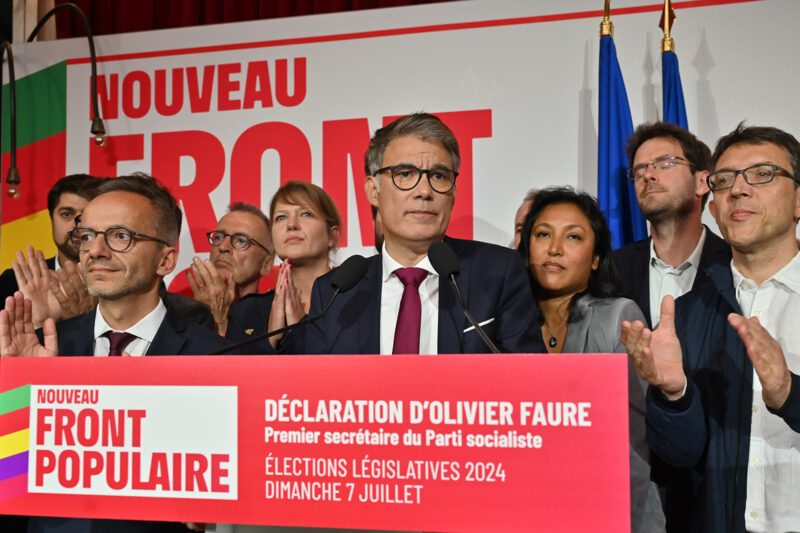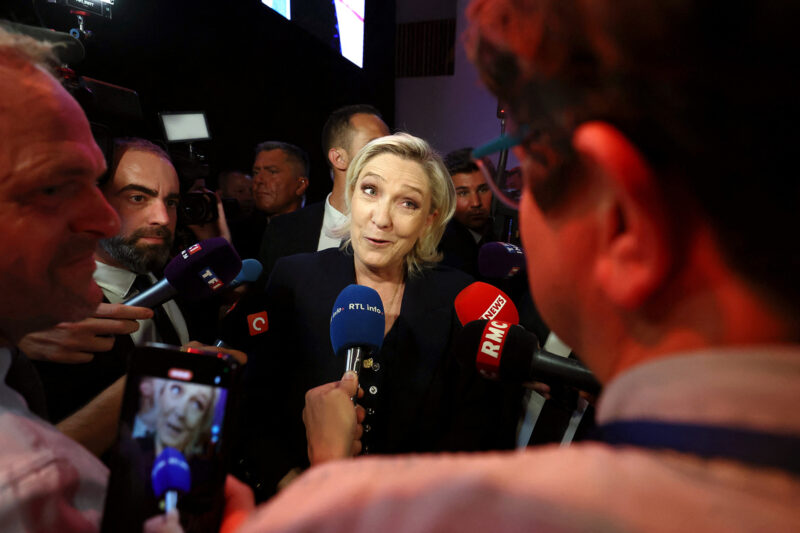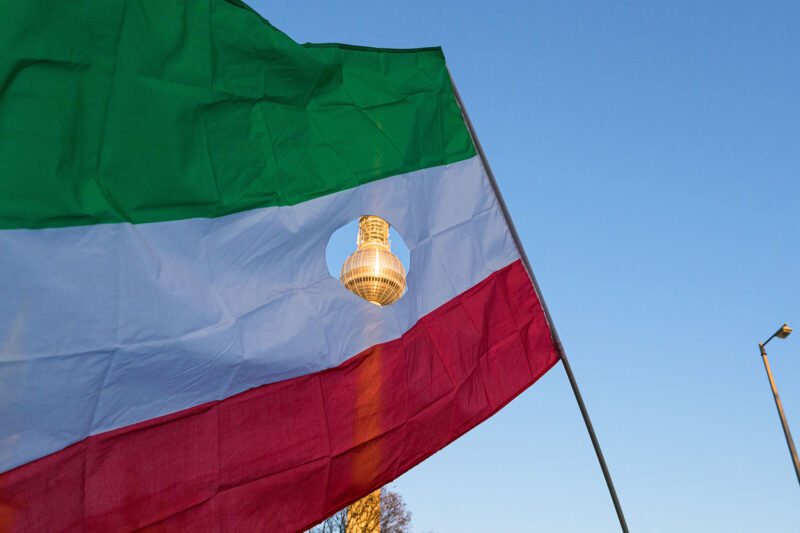France faces ‘consequential’ election as far right rout prompts Macron gamble
A majority for Marine Le Pen’s National Rally would see President Macron lose the power to set the domestic agenda on issues from the economy to immigration

The snap election called by President Emmanuel Macron after Sunday’s bruising loss to the far right in the European Parliament elections will be France’s most fateful legislative vote in decades, its finance minister said on 10 June.
Macron’s shock decision amounts to a roll of the dice on his political future and that of France. It immediately sent the euro down, also hitting French stocks and government bonds.
The 30 June and 7 July ballots could, for the first time, hand a great deal of power to Marine Le Pen’s far-right National Rally (RN), if they can transform their rising popularity into a win at home too – where the vote would also be about trust that it could run a major European government.
If the eurosceptic, anti-immigration RN did score a majority, Macron would remain president for three more years and continue to be in charge of defence and foreign policy.
But he would lose the power to set the domestic agenda, which includes economic policy, security and immigration.
The early election will also come shortly before the 26 July start of the Paris Olympic Games, when all eyes will be on France.
“This will be the most consequential parliamentary election for France and for the French in the history of the Fifth Republic,” Bruno Le Maire, the finance minister, told RTL radio, referring to Charles de Gaulle’s 1958 constitution, considered the starting point of modern French politics.
A source close to Macron said the president hoped to mobilise voters who abstained from voting on Sunday.
“We’re going for the win,” the source said. “There’s audacity in this decision, risk-taking, which has always been part of our political DNA.”
But another source close to Macron said: “I knew this option was on the table, but when it becomes reality it’s something else … I didn’t sleep last night.”
Helmed by 28-year-old Jordan Bardella, the RN won about 32% of Sunday’s European vote, more than double the Macron ticket’s 15%, exit polls show, in part thanks to voter anger with Macron’s perceived hauteur, and concerns over immigration and the cost of living. The Socialists came within a whisker of Macron with 14%.
Macron’s decision aims to make the best of his weak position, reclaiming the initiative and forcing the RN into election mode faster than it would have liked.
Some RN leaders appeared to have been caught off-guard, even if as early as February an RN source told Reuters they were preparing for the possibility of such a scenario, looking at which candidates they could field.
“We didn’t think it would be immediately after the European elections, even if we wanted it to be,” Sebastien Chenu, RN deputy chairman, said on RTL Radio. “Elections are rarely a gift and in this context, they aren’t.”
Bardella will be the party’s candidate for prime minister, he added.
Hung parliament?
The result is hard to predict. It is likely to depend on how committed leftist and centre-right voters are to the idea of blocking the far right from power. Voter turnout on Sunday was about 52%, the interior ministry said.
A widely leaked unofficial poll from the end of last year, the only recent one on snap elections, showed the RN on track to double or triple its score and possibly obtain a majority, but it dates from December and more recent ones would be needed to have a clear picture.
Macron’s Renaissance party currently has 169 lower house lawmakers out of a total of 577. The RN has 88.
Eurasia Group said the RN was no shoo-in for a majority, predicting a hung parliament as the most likely scenario.
“Faced with another hung parliament, [Macron] will try to form a wider alliance with the centre-right or centre-left, possibly by appointing a prime minister from one of those camps,” the thinktank said in a note.
“We foresee a losing struggle for serious domestic reform or strict deficit reduction in the remaining three years of Macron’s term,” it said, adding: “Emmanuel Macron has taken an enormous gamble, with his own reputation and legacy and the future of France.”
The dismal performance by Renaissance also hit the liberals hard at the EU level, with the Renew group it belongs to falling from 102 MEPs to 80.
This will all weaken Macron’s hand in wider, European Union policymaking, several diplomats told Reuters. “He is weakened in France, and in Europe even more,” one diplomat said.
 Newsletter
Newsletter












